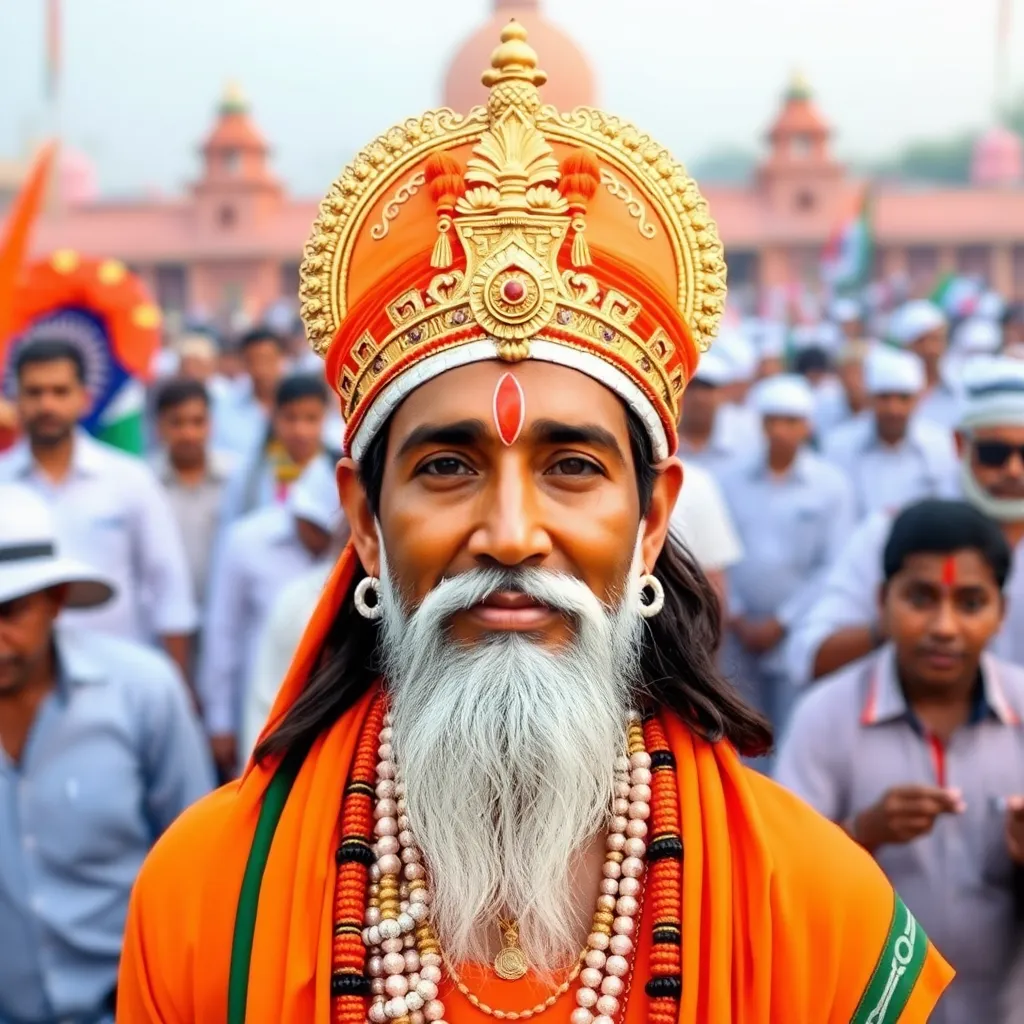
17-Oct-2024 , Updated on 10/17/2024 2:29:33 AM
When will India be a Hindu nation?
India, boasting of its colourful diversity, has witnessed increasing calls for the nation to become a Hindu Rashtra. Hindu fanatics claim that India was always a Hindu land that followed the Vedic path before the arrival of other religions into the subcontinent. But making India a Hindu country is not so easy.
Alright, let’s start decoding this concept, the political transformations that affect this concept, and how various communities feel about this possible future.
It can be safely said that Hinduism coloured India’s early years in its outside perception and identification. Jewish people and other ancient civilisations used texts, Vedic practices, and Hindu rulers to build India. Another religion that has a connection with Hinduism is Buddhism, and Jainism is another religion that emerged in India later.
But with time, other religions flooded into India. Islām came along with merchants and conquerors, while Christendom came through missionaries and settlers. Sikhism came much later as the other important religion of India. This synthesis of religions has made multicultural India what it is today.
There are, however, some people who think that when the British Empirical Nation was partitioned in 1947 to free India from Britain, newborn Pakistan should have been for Muslims while India should have remained a Hindu Nation for ailing Jinnah. However, instead, India adopted secularism in its polity, which means all religions were granted equal status. For many Hindus, it was an attempt, as they said, to create something that does not represent the antiquity of the country.
Of late, the concept of a Hindu Rashtra has been in the foreground, spearheaded by organisations like the Rashtriya Swayamsevak Sangh (RSS), Vishwa Hindu Parishad (VHP), and the Bajrang Dal. These groups claim that Hindus, although in the numerical majority, have suffered the loss of their dominance in their homeland.
These organisations have said the remedy is to make the country reflect the Hindu culture and history for it to have a prosperous future.
The BJP’s Narendra Modi and subsequent victories have given wing to this intolerance. In the present regime, some actions, such as the CAA and the scrapping of Article 370 in Jammu and Kashmir, looked like an effort to restore Hindu India.
On a positive note in general, Hindu Rashtra as a concept has substantial force and a strong way of following, though not without the various contingencies. Like any other law of India, its constitution too fails to discriminate against anyone, and if ever attempts to transform into a Hindu Rashtra, then this idea has a long way to go as it calls for amendments to the democratic laws of the country.
Besides, multi-religious is not the only for becoming; it is also a multi-lingual form, multi-caste, and multi-regional in Hindus alone. Establishing this Hindu nation might not be as easy as it looks.
While some say the country is on its way to becoming a Hindu nation, others suggest it is a long-term process covering many years. The current government as well as Hindu nationalist organisations are steering this vision; however, the democratisation of India along with resistance from the liberal sections of the population and the minorities will make it difficult to effect this transformation.
To what extent India will become a Hindu nation remains unknown. While hardliner politics is rising and seems to be increasingly defining India through a vision of Hindu Rashtra, India remains a secular democracy. The country's future is based on its ability to strike a balance between its Hinduism and its secular, democratic composition.

Student
hey there! i am a student currently pursuing my bachelors with a keen interest in writing., I am fueled by a deep love for storytelling and a flair for creating captivating narratives. Armed with a passion for language and a keen eye for detail, I strive to craft compelling copy that leaves a lasting impact.
Join Our Newsletter
Subscribe to our newsletter to receive emails about new views posts, releases and updates.
Copyright 2010 - 2026 MindStick Software Pvt. Ltd. All Rights Reserved Privacy Policy | Terms & Conditions | Cookie Policy